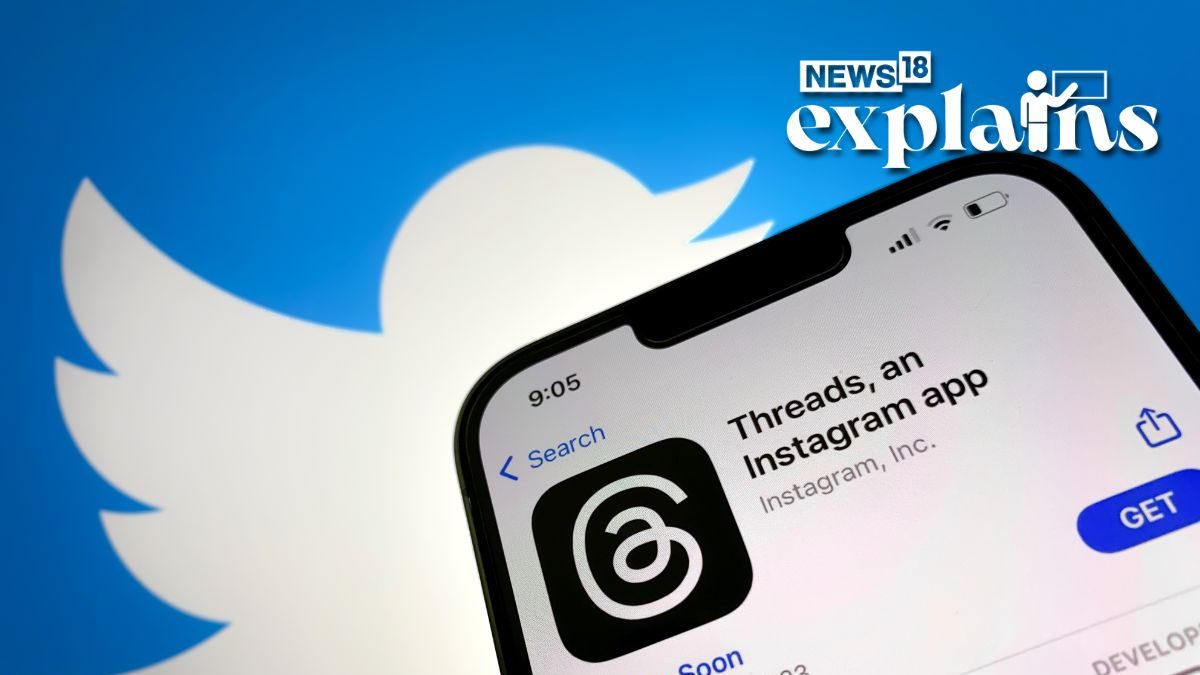[ad_1]
Threads, the Instagram-based challenge launched by Mark Zuckerberg to compete with Elon Musk’s troubled Twitter, has gained significant traction with tens of millions of downloads. However, its potential success as a rival to Twitter is still uncertain.
While there is a lot of speculation ongoing about whether Threads will be the ‘Twitter Killer,’ let’s look at one of the different offerings of Threads, which is its aim to be decentralised.
First, Why are Alternatives to Twitter Popping Up?
Elon Musk’s recent acquisition of Twitter, along with his plans to revamp the platform, has generated concerns among some users and advertisers. This has led to a digital succession crisis, as various social media networks vie for the attention of users who are seeking alternative platforms. As users migrate from Twitter, they are exploring different options in search of the next prominent internet forum.
Twitter recently imposed limitations on the number of tweets users can read. This move was met with widespread dissatisfaction. While there are alternative platforms available, such as Mastodon and Bluesky, none of them have managed to gain the same level of popularity as Twitter.
And while whether Threads will be successful or not remains to be seen. But let’s look at what’s different about the platform, despite its uncanny resemblance to Twitter:
Decentralised Platform
One of the key distinguishing features of Threads compared to Twitter is its decentralised ambitions. Threads aims to allow users to plug their posts into other social media platforms like Mastodon, enabling interoperability between different apps built on the same underlying standards. This decentralised approach sets it apart from Twitter, which has been limiting third-party developers’ access to its API, as per a report by Vox.
Threads, as the first app from Meta with a focus on decentralization, aligns with the concept that users should have the ability to port their social media content and interact across various apps, the report explains. Mastodon, a popular social network, already operates on a decentralised model, which proponents argue can create a more diverse internet ecosystem, not dominated by a single social media company. Threads intends to adopt a similar decentralised approach.
While Threads has plans for interoperability, it is not yet fully ready. According to a blog post by Meta, the company behind Threads, the app will soon be compatible with the ActivityPub protocol. This protocol, developed by the World Wide Web Consortium (W3C), sets standards for independent operation of social networks.
The ultimate goal is for Threads posts to be visible on other apps, such as Mastodon or WordPress, and allow users to comment across these apps, the Vox reports. Additionally, if users decide to switch from Threads to another app, they should be able to port their content seamlessly.
Meta believes that this decentralized approach, akin to the protocols governing email and the web, will have a significant role in the future of online platforms. However, while decentralization is a trending concept in the tech industry, the average user may not be familiar with it or prioritize it, the report explains.
What is the ActivityPub protocol?
ActivityPub is a technology that enables interoperability among social networks, allowing them to connect through a single social graph and content-sharing system. It is an established standard based on older ideas of a fundamentally different structure for social networking—one that resembles email or traditional web chat rather than the closed platforms we commonly use today. ActivityPub operates on open protocols, emphasizing user control and striving to ensure that the social web transcends any single company’s dominance.
For the past 15 years, the social web has largely remained stable, with Facebook, Instagram, Reddit, and Snapchat dominating the market, as per a Verge report. Algorithmic entertainment gained prominence, and TikTok disrupted the landscape. However, even with these changes, users have largely been confined within the walls of closed social platforms.
To grasp the vision of a better social future, it’s essential to understand what decentralized social networking entails. It differs significantly from the current internet landscape. Simply put, decentralization involves completely separating the user interface from the underlying data. When users join a new social app in a decentralized model, they don’t have to rebuild their audience or rediscover their friends. Their entire following and followers list seamlessly accompany them. These aspects should be integrated into the internet itself rather than being tied to specific applications.
Are there Any Demerits to Decentralising?
While decentralized networks offer new possibilities, they also bring forth new security threats, according to a 2017 Wired report. These networks typically allow anyone to join without linking accounts to real-world identities like phone numbers. Public key cryptography is often employed to ensure account security. However, managing public keys can be challenging for most users, and creating software that is both cryptographically secure and user-friendly is difficult.
Social media platforms serve as curators rather than just publishers. Platforms like Facebook not only dictate what content is acceptable for publication but also control which posts are displayed, highlighting the most engaging content to users. These platforms tend to prioritize advertising revenue and often optimize for attention-grabbing or feel-good content. Designing robust reward mechanisms to curate informative rather than entertaining content remains a challenge, the report explains. If decentralized platforms can overcome this hurdle, they could potentially address issues like echo chambers and filter bubbles. However, these challenges remain significant obstacles for new systems.
The report adds that platforms benefit from economies of scale, making it more cost-effective to acquire resources like storage and bandwidth in bulk.
With network effects, larger platforms become more useful, leading to consolidation. Even in self-consciously decentralized systems like Bitcoin, there has been a tendency towards consolidation, with large mining pools and exchanges emerging as super-participants. Market consolidation is also driven by user-targeted advertising models, which incentivize hoarding user views and data, discourage interoperability, and encourage platforms to grow ever larger.
[ad_2]
Source link




